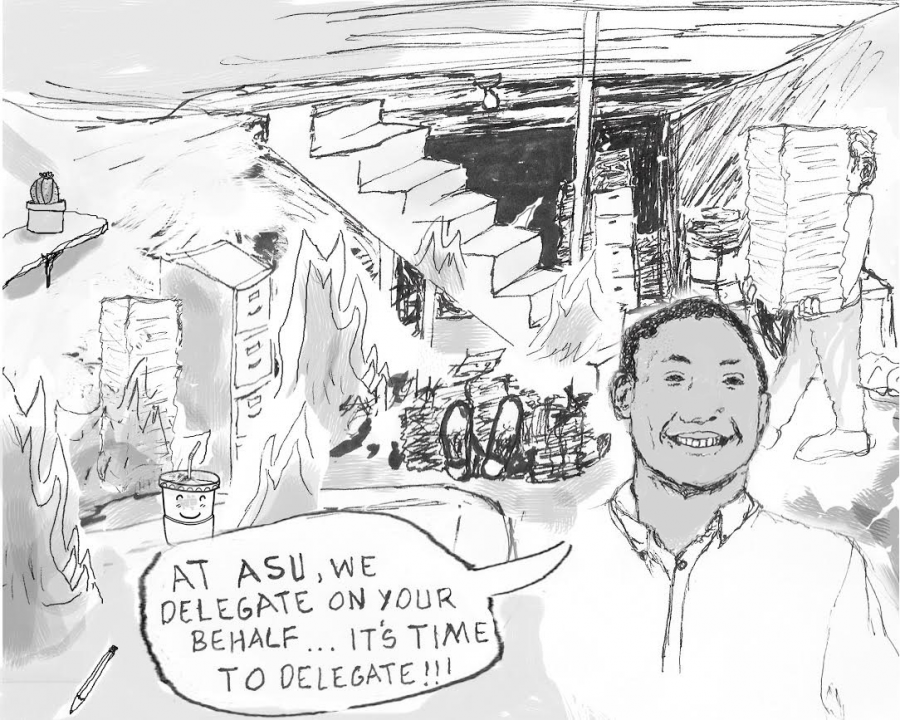ASU leaves campus in dark
Divide between senators, students grows as election nears
Mar 14, 2018
In most college campuses, the hub of political discourse and the place for students to plan future endeavors is at a student government meeting. But, sadly, for students at Contra Costa College, legislative agendas that shape all of our futures are rarely exposed.
Sure, students can rail against administrators who may not represent their best interests, but in a system of shared governance, senators elected to stand for us need to do a better job disseminating information to the rest of the campuses.
The Associated Students Union does have a Twitter account, but the collection of student-representatives has not sent a tweet to constituents since Feb. 10, 2017.
CCC senators show a smidgen more attention to Instagram with one post this semester, however, it is the only one since Feb. 28 of last year.
Students elect ASU members to represent them, but without any interaction with those elected officials, how will they know which decisions are the most beneficial to students?
Have ASU members ever conducted a poll?
Are there briefings given to students about pending decisions or concerns surrounding changing curriculum?
ASU President Alexander Walker-Griffin said he surveys the needs of students through the ASU suggestion box and by word of mouth.
However, many students on campus don’t even know where the suggestion box is, or that there is even an ASU on campus.
There is no way to be sure the perspective given by the student senators on campus actually symbolizes the will of the people.
Walker-Griffin said, “In meetings here on campus or at the district or state level, I try to give the perspective of what I “hope” represents many students at CCC.”
Last week, the ASU president attended a conference to learn about the Guided Pathways education plan and then attended meetings with the Faculty Association for California Community College Policy among other groups.
During the talks, Walker-Griffin spoke in representation of all students at CCC, without ever truly finding out how they really feel.
Following the talks, rather than post his opinion on these various pressing issues to his constituents using the ASU’s social media platforms, Walker-Griffin posted the information to his personal Instagram account.
As of press time, none of the information from the ASU president’s account has been posted to any of the official ASU social media accounts.
Despite having five fewer senators at their disposal than the group had this time last year, many of the ASU sponsored events have continued to occur with the usual reliability.
With dwindling participation in student governance and the pending departure of many of the current office holders, the Associated Student Union is hoping to make successful recruitment tools out of Club Rush.
A rained-out Club Rush will not solve the ASU’s participation problems. Only a concerted effort to become a visible part of the campus community can do that.
What might help bridge the information gap is finding some way for senators to keep students informed of district actions and aware that their student government is working for them.


